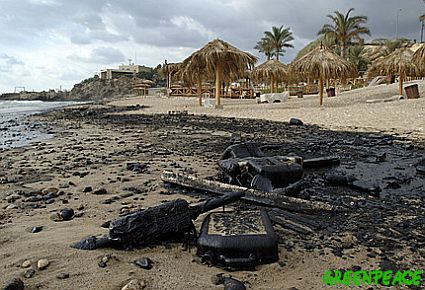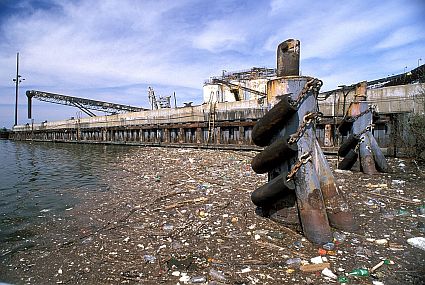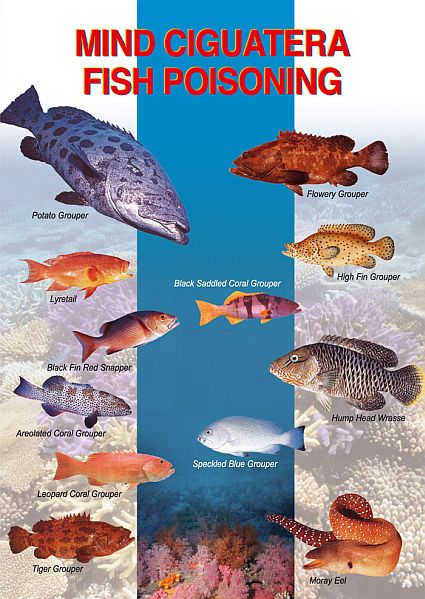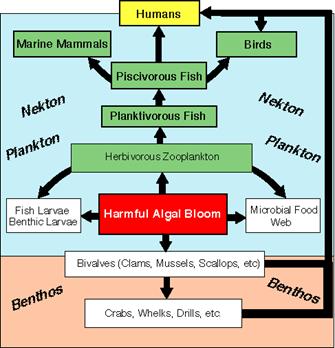
Oceans have forever been used as the dump houses of the so-called civilizations garbage. Yet humans expect to get there food from these very waters. Rapid pollution of ocean waters is badly damaging corral reefs, the habitat of numerous fish and infecting human kind with Ciguatera fish poisoning.

Like coral reefs, mangroves and other oceanic habitats, bays, sounds and harbors all over the world are also threatened habitats.
Dozens of popular fish types, including grouper and barracuda, live near reefs. They accumulate the toxic chemical in their bodies from eating smaller fish that graze on the poisonous algae. When oceans are warmed by the greenhouse effect and fouled by toxic runoff, coral reefs are damaged and poison algae thrives.

Filipino fish vendors wait for customers at the Villa Arevalo public market.
Bowls of piping hot barracuda soup were the much-anticipated treat when the Roa family gathered for a casual and relaxing Sunday meal. Within hours, all six fell deathly ill. So did two dozen others from the same neighborhood. Some complained of body-wide numbness. Others had weakness in their legs. Several couldn’t speak or even open their mouths. What Roa and the others suffered that night last August was ciguatera poisoning, a rarely fatal but growing menace from eating exotic fish. All had bought portions of the same barracuda from a local vendor.

Ciguatera has long been known in the South Pacific, the Caribbean and warmer areas of the Indian Ocean. Some South Pacific islanders use dogs to test fish before they eat. But in the past decade, it has spread through Asia, Europe and the United States, where more restaurants are serving reef fish, prized for their fresh taste and exotic cachet.

Hong Kong, which imports much of its seafood, went from fewer than 10 cases annually in the 1980s to a few hundred now.
Currently, there is no dependable way to identify whether a fish has ciguatera or not. The molecule is extremely complex and differs markedly from region to region. High demand for the brain food of fish and cash greedy fishermen will eventually lead to ciguatoxic fish entering markets around the world. Should global warming and pollution worsen and boost ciguatera poisonings, as most experts foresee, health officials will face an intimidating challenge.
Source: AP

